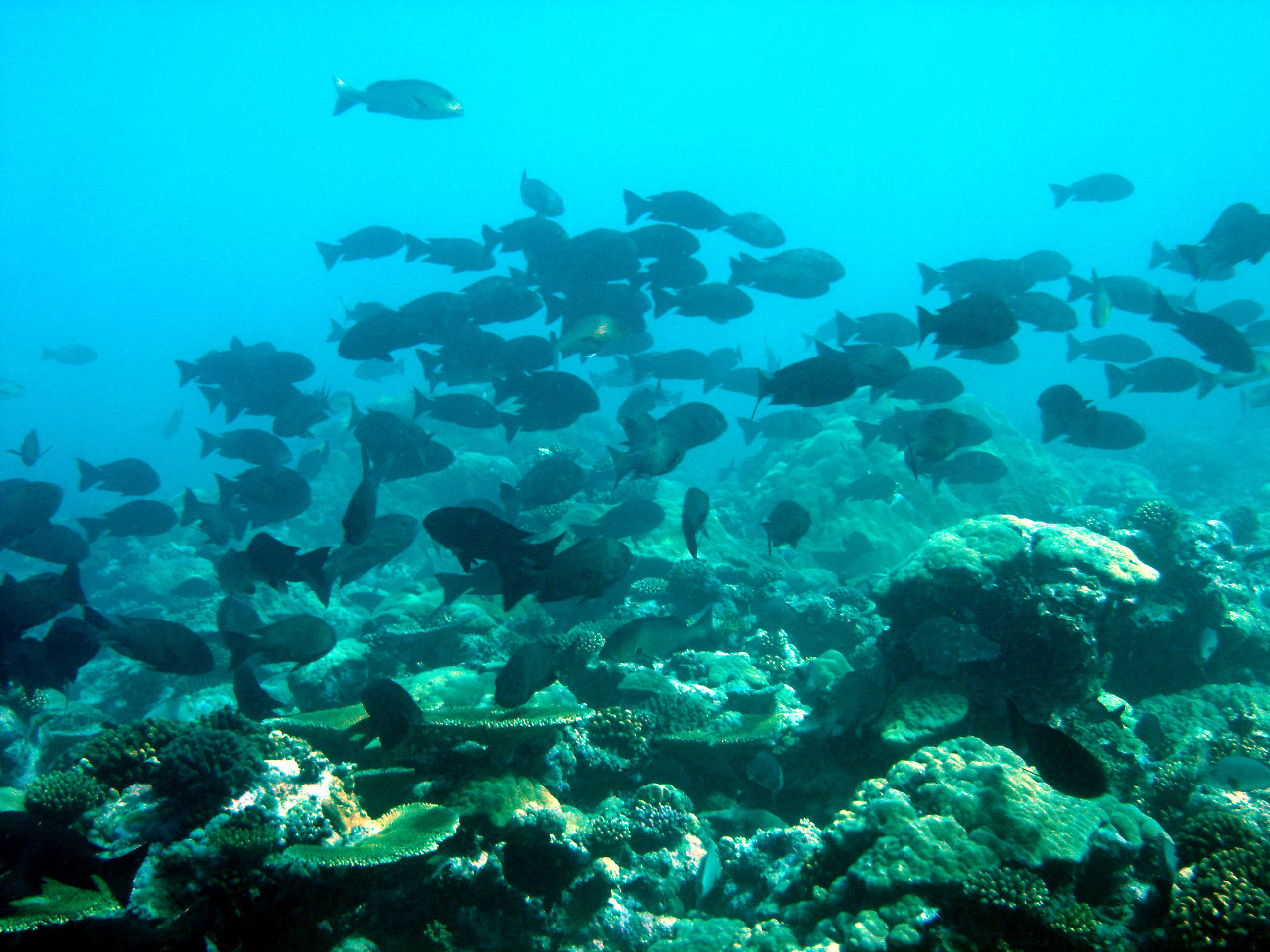Humans bear much of the responsibility for the steady decimation of coral reefs. The marine ecosystems have been overfished, dissolved by their increasingly acidic surroundings and cooked in the warming waters of the world’s oceans. Roughly 20 percent of coral reefs have already collapsed beyond recovery, and half of those that remain are poised to follow. With billions of dollars in ecosystem services and tourism revenue at stake, protecting reefs has become a top priority around the globe, but little research has been done to find out how long it will take these ecosystems to recover.
Today, researchers report in the journal Nature that protected reefs could bounce back in as little as 35 years on average, but that the most heavily degraded reefs may take as many as 59 years to fully recover.
To settle on these timelines, the researchers looked at data from 832 coral reefs spanning 64 countries and territories around the world. They used the population density of reef fish around relatively untouched reefs to estimate the global baseline density of reef biomass and compared that baseline to marine protected reefs where fishing had been banned to get the rate of recovery.

Protected marine sanctuaries, where fishing is prohibited, are the ideal strategy for conserving reefs. And fishing bans put in place over the past 10 to 20 years are bringing several endangered reefs back from the brink, but, the authors note, it will take decades of continued protection for these reefs to fully recover.
“Marine protected areas are really important tools in the toolbox for conserving oceans,” says Aaron MacNeil, a senior research scientist at the Australian Institute of Marine Science, and lead author on the study. “But they don’t work for everybody.” At least 30 million people worldwide depend exclusively on reefs for food and income.
Luckily, MacNeil and his colleagues found that even partial fishing restrictions could help save endangered reefs. The study showed that reefs with at least some form of fishing restrictions—such as bans on specific gear or limits on which types of fish can be caught—had 27 percent more biomass recovery than reefs without any restrictions at all. That’s good news for countries that can’t afford to enforce total restrictions.

“We found that any kind of restriction had a positive effect in terms of maintaining the ecosystem,” MacNeil says, “and that’s a really big deal because all of a sudden you’ve gone from a one size fits all [management technique] to a range of options for people.”
Today, overfishing is one of the main drivers of reef degradation, but the study shows it’s a problem that can be addressed based on the needs and means of coastal communities. And we should be doing everything we can to increase the resiliency of reefs, even though it’s still uncertain how reefs will fare in climate-changed oceans, MacNeil says. “Hopefully, we’re not just rearranging the deck chairs on the Titanic.”
Quick Studies is an award-winning series that sheds light on new research and discoveries that change the way we look at the world.




